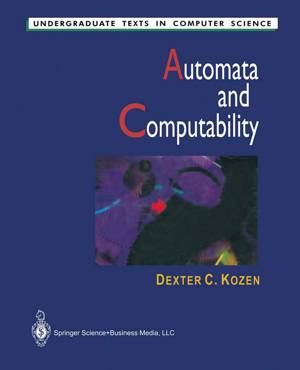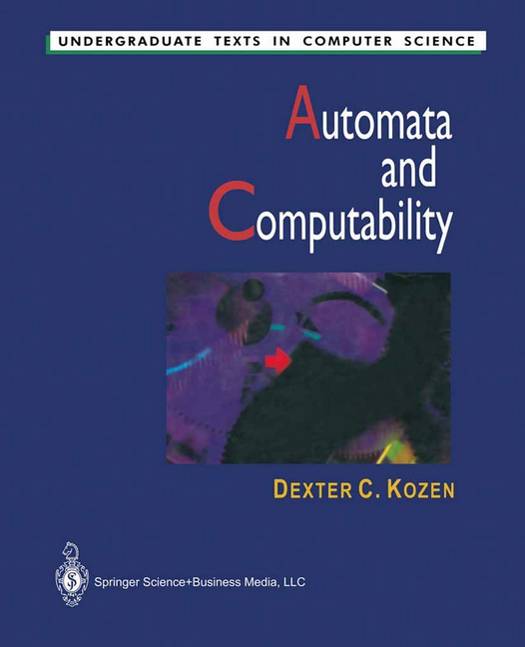
- Afhalen na 1 uur in een winkel met voorraad
- Gratis thuislevering in België vanaf € 30
- Ruim aanbod met 7 miljoen producten
- Afhalen na 1 uur in een winkel met voorraad
- Gratis thuislevering in België vanaf € 30
- Ruim aanbod met 7 miljoen producten
Zoeken
Omschrijving
These are my lecture notes from CS381/481: Automata and Computability Theory, a one-semester senior-level course I have taught at Cornell Uni versity for many years. I took this course myself in thc fall of 1974 as a first-year Ph.D. student at Cornell from Juris Hartmanis and have been in love with the subject ever sin,:e. The course is required for computer science majors at Cornell. It exists in two forms: CS481, an honors version; and CS381, a somewhat gentler paced version. The syllabus is roughly the same, but CS481 go es deeper into thc subject, covers more material, and is taught at a more abstract level. Students are encouraged to start off in one or the other, then switch within the first few weeks if they find the other version more suitaLle to their level of mathematical skill. The purpose of t.hc course is twofold: to introduce computer science students to the rieh heritage of models and abstractions that have arisen over the years; and to dew!c'p the capacity to form abstractions of their own and reason in terms of them.
Specificaties
Betrokkenen
- Auteur(s):
- Uitgeverij:
Inhoud
- Aantal bladzijden:
- 400
- Taal:
- Engels
- Reeks:
Eigenschappen
- Productcode (EAN):
- 9783642857089
- Uitvoering:
- Paperback
- Afmetingen:
- 191 mm x 235 mm

Alleen bij Standaard Boekhandel
+ 201 punten op je klantenkaart van Standaard Boekhandel
Beoordelingen
We publiceren alleen reviews die voldoen aan de voorwaarden voor reviews. Bekijk onze voorwaarden voor reviews.







